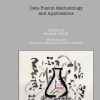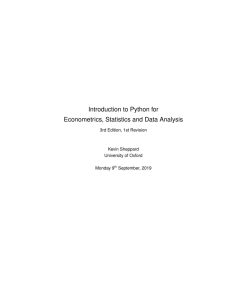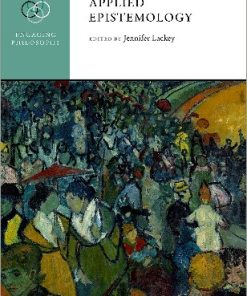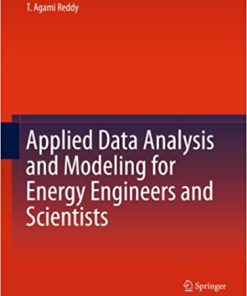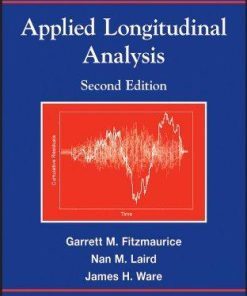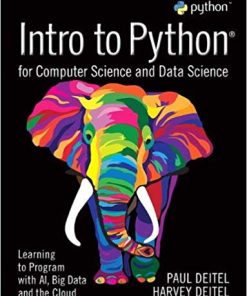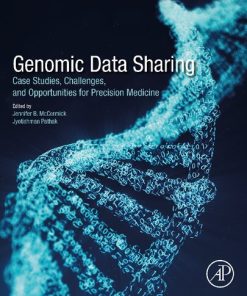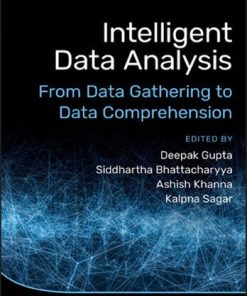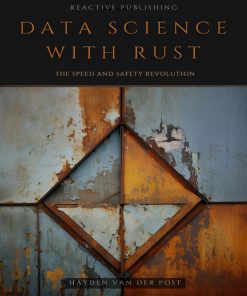Data Science Applied to Sustainability Analysis 1st edition by Jennifer Dunn 0128179772 9780128179772
$50.00 Original price was: $50.00.$25.00Current price is: $25.00.
Data Science Applied to Sustainability Analysis 1st edition by Jennifer B. Dunn – Ebook PDF Instant Download/DeliveryISBN: 0128179772, 9780128179772
Full download Data Science Applied to Sustainability Analysis 1st edition after payment.
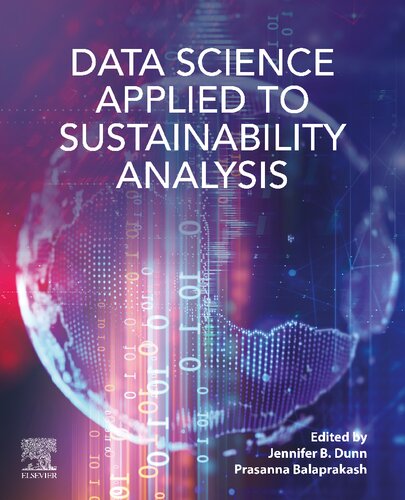
Product details:
ISBN-10 : 0128179772
ISBN-13 : 9780128179772
Author : Jennifer B. Dunn
Data Science Applied to Sustainability Analysis focuses on the methodological considerations associated with applying this tool in analysis techniques such as lifecycle assessment and materials flow analysis. As sustainability analysts need examples of applications of big data techniques that are defensible and practical in sustainability analyses and that yield actionable results that can inform policy development, corporate supply chain management strategy, or non-governmental organization positions, this book helps answer underlying questions. In addition, it addresses the need of data science experts looking for routes to apply their skills and knowledge to domain areas.
Data Science Applied to Sustainability Analysis 1st Table of contents:
Chapter 1 Overview of data science and sustainability analysis
Chapter Outlines
Abstract
Data science is central to advances in sustainability
Types of sustainability analyses
Data science tools
Overview of case studies in data science in sustainability
References
Part I Enironmental Health and Sustainability
Chapter 2 Applying AI to conservation challenges
Chapter Outlines
Abstract
Introduction
What is adaptive management?
Creating value with AI
The impact technology canvas: synchronizing AI initiatives
Summary
References
Chapter 3 Water balance estimation in Australia through the merging of satellite observations with models
Chapter Outlines
Abstract
Introduction
Case studies
Estimation of terrestrial water storage through the merging of Gravity Recovery and Climate Experiment (GRACE) data with a hydrologic model
Conclusion
References
Chapter 4 Machine learning in the Australian critical zone
Chapter Outlines
Abstract
What is CZ science?
Machine learning techniques used
Questions addressed and data used
Key results, insights, and why they matter to the field of sustainability
Future development and application of data science in CZ science
Glossary terms
References
Part II Energy and Water
Chapter 5 A clustering analysis of energy and water consumption in U.S. States from 1985 to 2015
Chapter Outlines
Abstract
Introduction
Materials and methods
Results
Conclusion and discussion
Acknowledgments
Appendix
References
Chapter 6 Exploring rooftop solar photovoltaics deployment and energy injustice in the US through a data-driven approach
Chapter Outlines
Abstract
Introduction
A focus on distributed solar PV
Assessing rooftop PV potential across cities
Evaluating equity in rooftop PV deployment: a case study for the United States
Concluding remarks
References
Chapter 7 Data-driven materials discovery for solar photovoltaics
Chapter Outlines
Abstract
Introduction
Fundamentals of photovoltaics
Data-driven materials discovery schemes
Case studies of solar materials discovery
Future outlook
References
Part III Sustainable Systems Analysis
Chapter 8 Machine learning in life cycle assessment
Chapter Outlines
Abstract
Introduction to life cycle assessment (LCA)
LCAs role in sustainability
General methods for process LCA
Impact assessment
Uses and limitations of LCA
Tools and data sources for LCA
Introduction to machine learning (ML)
Types of ML
Choosing a machine learning algorithm
Tools for ML
ML in LCA
ML for surrogate LCAs
ML in LCI
ML in LCIA
ML in interpretation and analysis
Conclusion
References
Chapter 9 Industry sustainable supply chain management with data science
Chapter Outlines
Abstract
Introduction to LCA
Today’s limitations
LCA applications
Vision/Needs
References
Part IV Society and Policy
Chapter 10 Deep learning with satellite imagery to enhance environmental enforcement
Chapter Outlines
Abstract
Introduction
The methodological evolution of remote sensing
Using deep learning to identify CAFOs
Discussion
References
Chapter 11 Towards achieving the UNs data revolution: combining earth observation and socioeconomic data for geographic targeting of resources for the sustainable development goals
Chapter Outlines
Abstract
Why social remote sensing?
Using EO data for understanding socioeconomic conditions
How can we socialize the pixel?
A socio-ecologically informed approach to linking EO and socioeconomic data
Future directions for EO and social data
Conclusions
References
Chapter 12 An indicator-based approach to sustainable management of natural resources
Chapter Outlines
Abstract
Introduction
Selecting and prioritizing indicators
Indicator datasets and data science considerations
Environmental indicator datasets
Socioeconomic indicator datasets
Data analytics
Descriptive analytics
Monetization of ecosystem services
Data visualizations
Predictive analytics
Prescriptive analytics
Socio-ecological systems research
Implications for society & policy
Conclusion
References
Part V Conclusion
Chapter 13 Research and development for increased application of data science in sustainability analysis
Chapter Outlines
Abstract
Introduction
Needs for data to enable data science in sustainability
Data sources
Data science advances
People also search for Data Science Applied to Sustainability Analysis 1st:
importance of data science and analytics
data science and sustainability
data analysis sustainability
data analytics and sustainability
sustainability data analytics
Tags: Data Science, Sustainability Analysis, Jennifer Dunn,
You may also like…
Business & Economics - Econometrics
Introduction to Python for Econometrics, Statistics and Data Analysis
Politics & Philosophy - Anthropology
Uncategorized
Uncategorized
Medicine - Clinical Medicine
Uncategorized
Mathematics - Mathematical Theory


